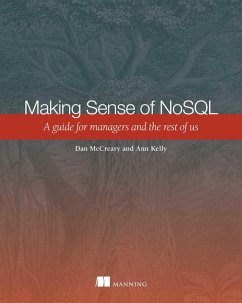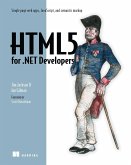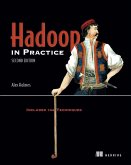Making Sense of NoSQL clearly and concisely explains the concepts, features, benefits, potential, and limitations of NoSQL technologies. Using examples and use cases, illustrations, and plain, jargon-free writing, this guide shows how you can effectively assemble a NoSQL solution to replace or augment the traditional RDBMS you have now.
About this Book
If you want to understand and perhaps start using the new data storage and analysis technologies that go beyond the SQL database model, this book is for you. Written in plain language suitable for technical managers and developers, and using many examples, use cases, and illustrations, this book explains the concepts, features, benefits, potential, and limitations of NoSQL.
Making Sense of NoSQL starts by comparing familiar database concepts to the new NoSQL patterns that augment or replace them. Then, you'll explore case studies on big data, search, reliability, and business agility that apply these new patterns to today's business problems. You'll see how NoSQL systems can leverage the resources of modern cloud computing and multiple-CPU data centers. The final chaptersshow you how to choose the right NoSQL technologies for your own needs.
Managers and developers will welcome this lucid overview of the potential and capabilities of NoSQL technologies.
Purchase of the print book includes a free eBook in PDF, Kindle, and ePub formats from Manning Publications.
What's Inside
- NoSQL data architecture patterns
- NoSQL for big data
- Search, high availability, and security
- Choosing an architecture
About the Authors
Dan McCreary and Ann Kelly lead an independent training and consultancy firm focused on NoSQL solutions and are cofounders of the NoSQL Now! Conference.
Table of Contents
- PART 1 INTRODUCTION
- NoSQL: It's about making intelligent choices
- NoSQL concepts PART 2 DATABASE PATTERNS
- Foundational data architecture patterns
- NoSQL data architecture patterns
- Native XML databases PART 3 NOSQL SOLUTIONS
- Using NoSQL to manage big data
- Finding information with NoSQL search
- Building high-availability solutions with NoSQL
- Increasing agility with NoSQL PART 4 ADVANCED TOPICS
- NoSQL and functional programming
- Security: protecting data in your NoSQL systems
- Selecting the right NoSQL solution
Dieser Download kann aus rechtlichen Gründen nur mit Rechnungsadresse in A, B, BG, CY, CZ, D, DK, EW, E, FIN, F, GR, HR, H, I, LT, L, LR, M, NL, PL, P, R, S, SLO, SK ausgeliefert werden.









